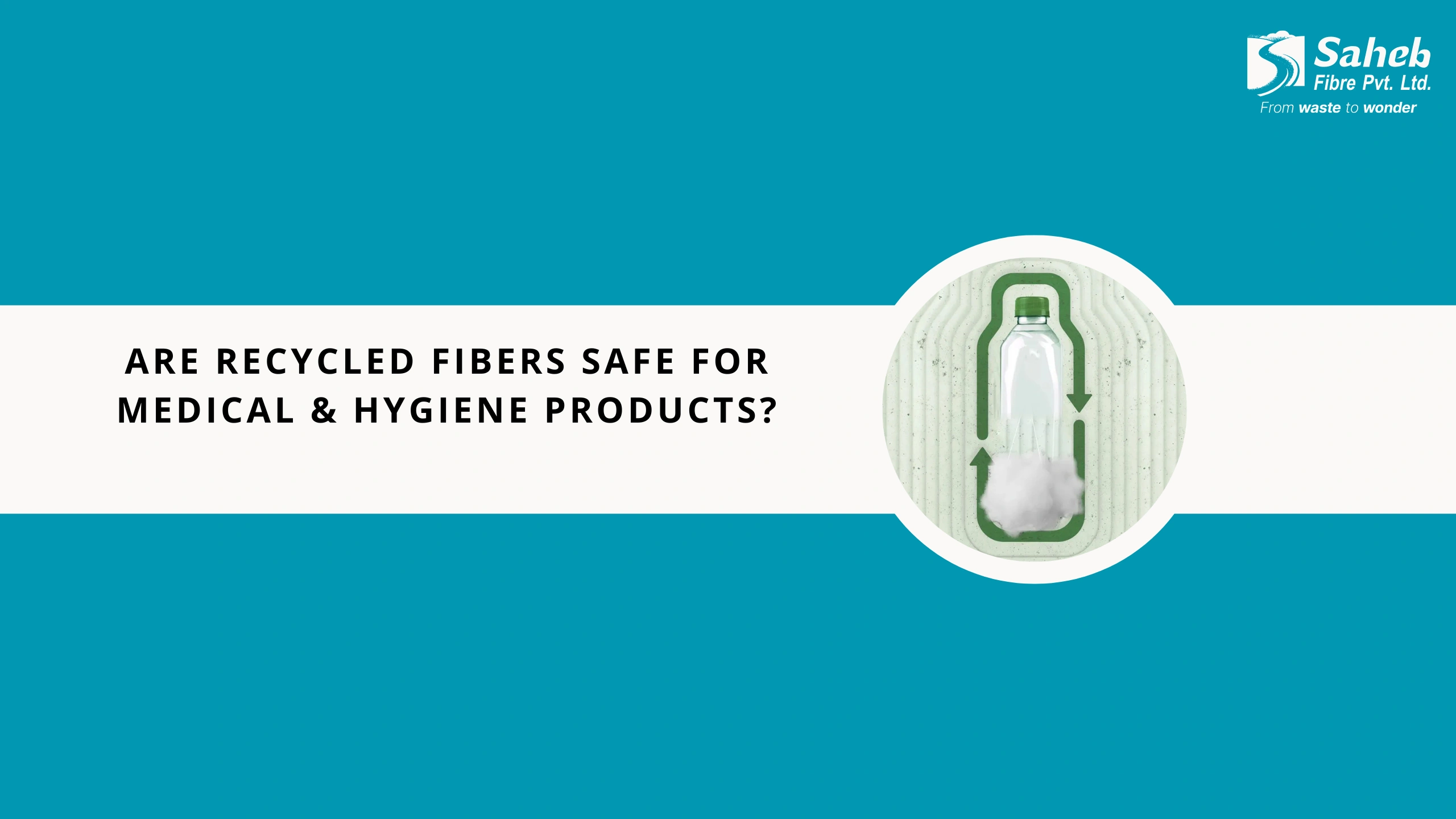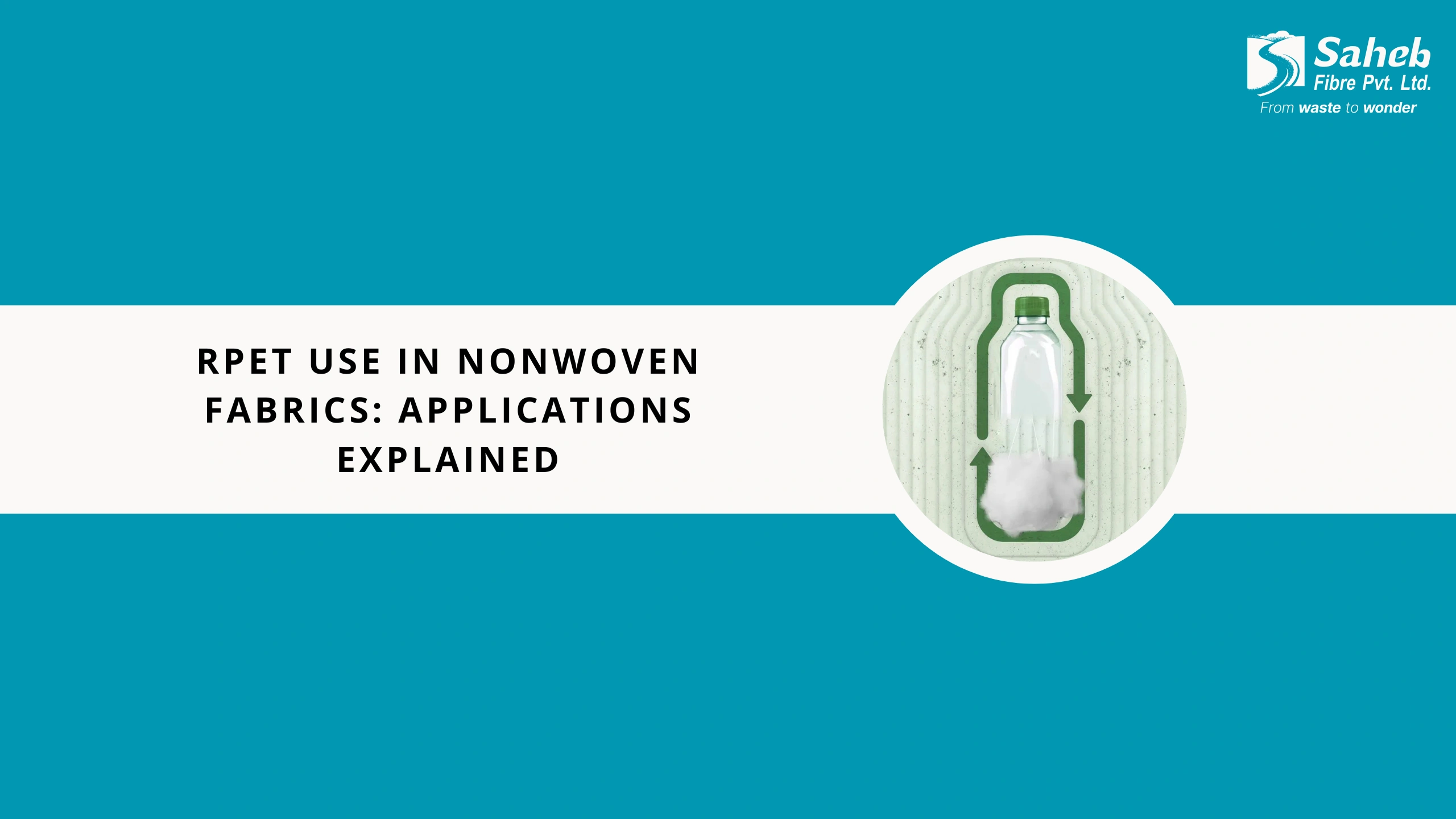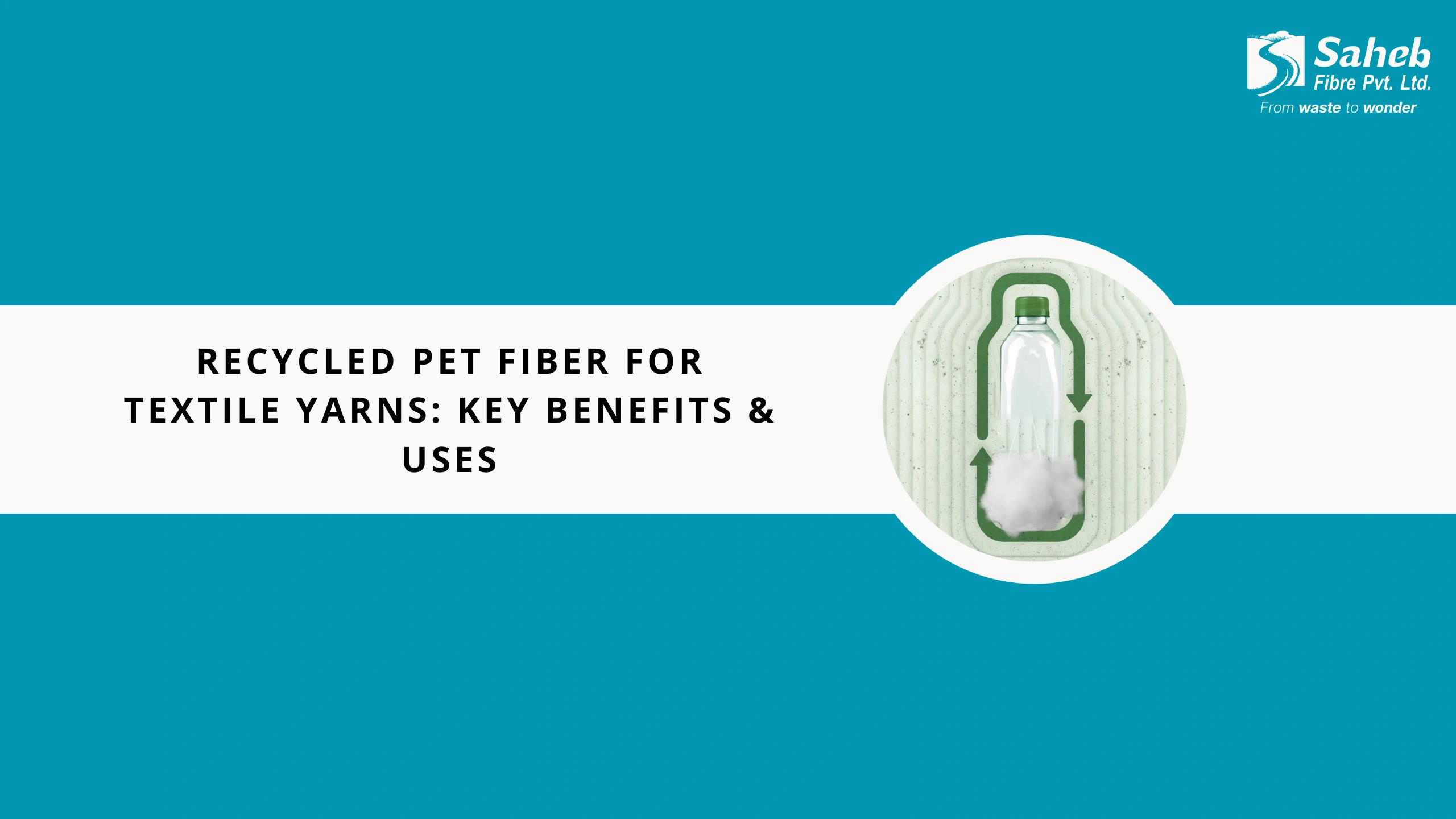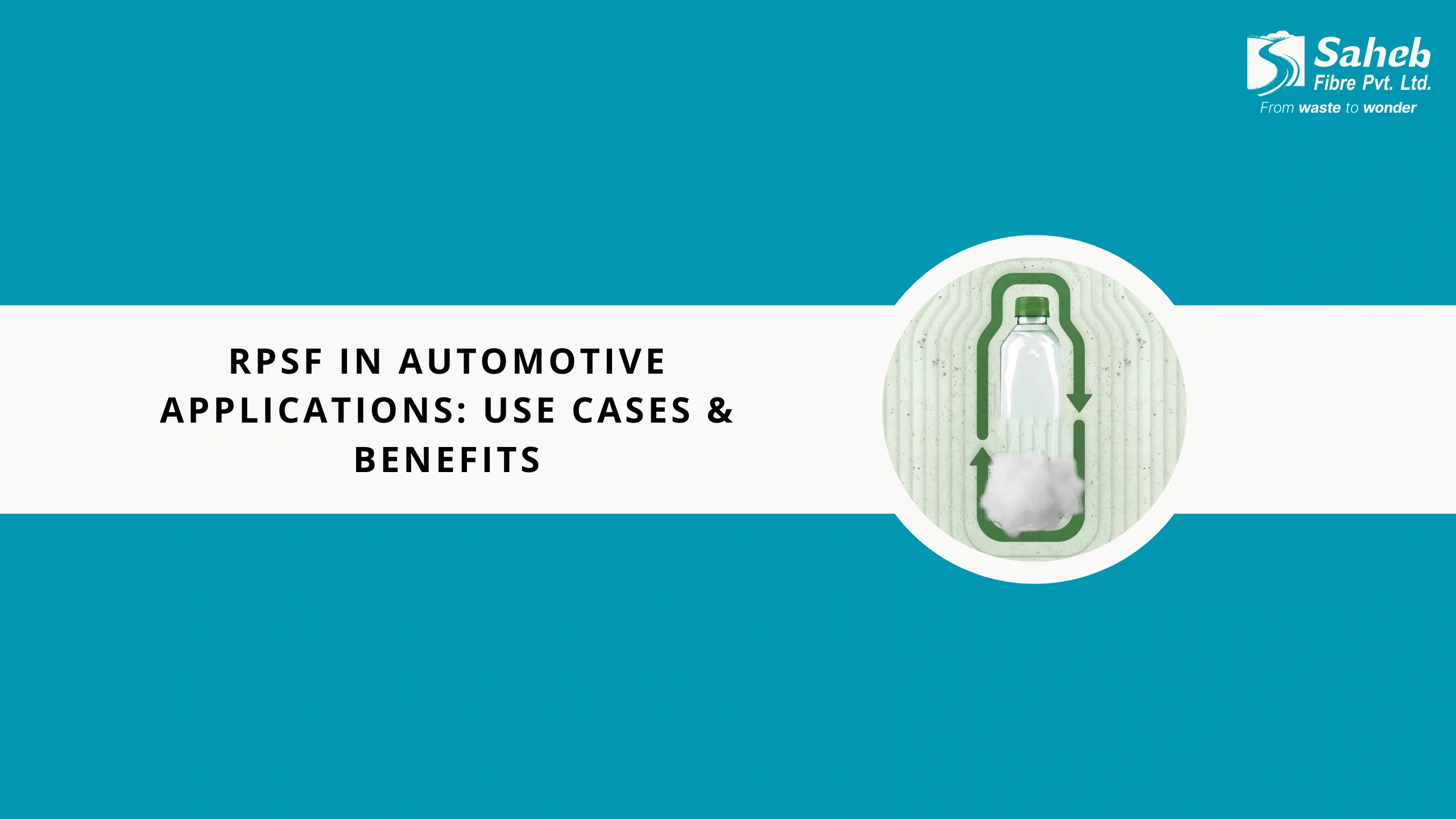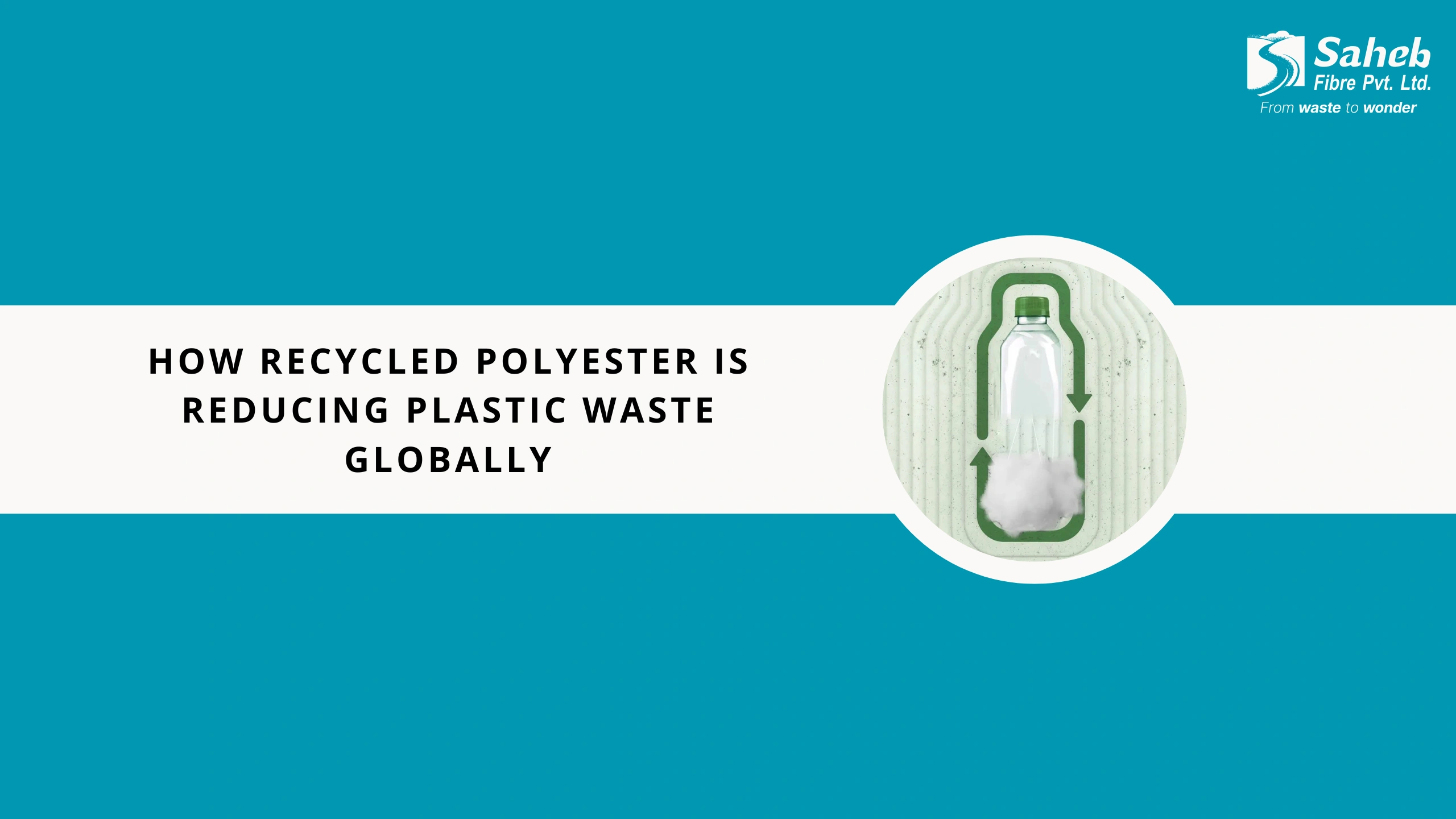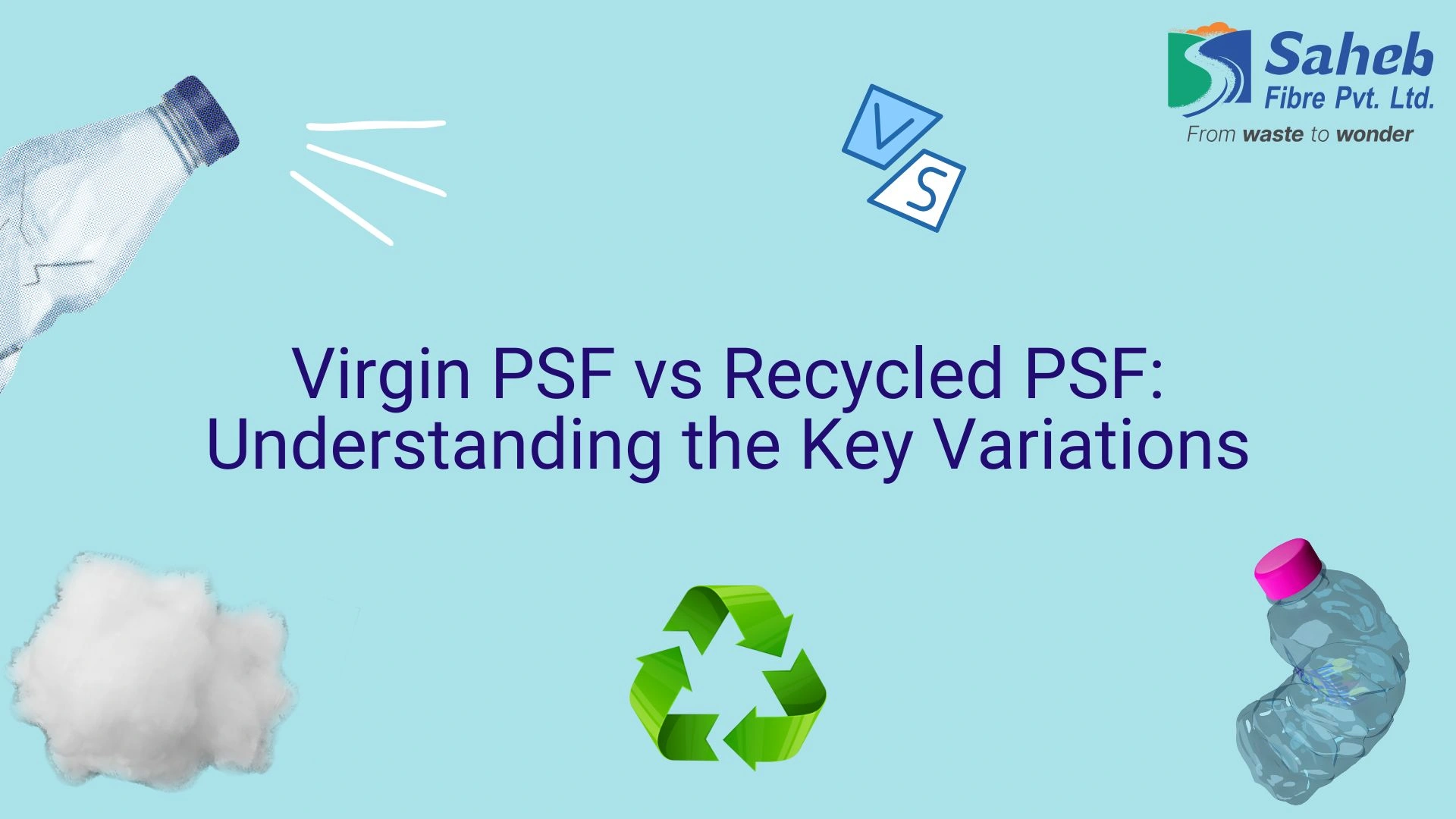
Polyester staple fiber is a general fiber which is quite commonly used in the textile industry and for insulation purposes and other uses. It comes in two main types: Virgin PSF and Recycled PSF. Both products are based on a similar substrate, but they are completely different in terms of production, quality, and ecological corresponds. This blog will look at these three major differences to assist you make better choices when deciding between them.
Introduction to PSF (Polyester Staple Fiber)
Polyester Staple Fiber (PSF) is a manufactured fiber produced from polyethylene terephthalate (also known as PET). It is applied in products as diverse as garments and home textiles through to automotive interiors, and automotive padding. The advantages that make it attractive are that it is hard wearing, lightweight, and relatively inexpensive.
What is Virgin PSF?

Virgin PSF is derived from post consumer recycled material, and is made from materials from the petrochemical industry. This has not been processed or recycled so that it has high quality of purity and homogeneity of the material. This type is used often when better strength and finish of part is required for the particular application.
What is Recycled PSF?

Recycled PSF is made by re-extrusion of waste polyester materials for instance; the used PET bottles; fabric scraps. Recycling these materials means that manufacturers waste less on landfill as well as reduce the energy they use. Despite producing slightly lower quality products, Recycled PSF is a substitute to Virgin PSF.
Key Differences Between Virgin and Recycled PSF
The most obvious difference and easily distinguishable between Virgin Polyester Staple Fiber (PSF) and Recycled Polyester Staple Fiber (RPSF) by their raw material origin, manufacturing feasible process, the scrap left on the environment, and on proposing the cost difference. It is also important to know these differences in order to make sound decisions about sustainability and performance in industries.

1. Raw Materials and Production Process
Virgin PSF is derived directly from petrochemical feedstock in relation to purified terephthalic acid (PTA) and mono ethylene glycol (MEG) polymerizing step. This process forms a fibre of high quality, standard, and ease to use by industries such as the textile industries for clothes, the manufacturing sectors for sanitary products and building construction among others.
Recycled PSF, for instance, is produced from post client plastic materials like consumed PET bottles. Recycling is the practice that entails removal of these anti resins, melting them and converting them to fibers at a very molecular level. This method will make it possible to obtain a product similar to virgin fiber, albeit with reduced effects on the environment.
2. Environmental Impact
Virgin PSF production has higher environmental cost in terms of natural resource extraction and processing which involves large energy use and therefore high carbon footprint.
New recycled PSF have a better impact because they reduce energy consumption since the fabric material is used in a new production cycle instead of new fabric material being produced. Recycling reduces the amount of plastic waste that is likely to end up in either the landfills or the seas.
3. Quality and Performance
When it comes to strength, durability and versatility it has been seen that virgin as well as recycled fibers do not differ much in their performance. Modern development has realized recycled fiber to be of almost similar quality to virgin fiber.
However, the quality of recycled PSF depends with the source of the recycled material and proper recycling techniques.
4. Cost Considerations
Virgin PSF is often cost prohibitive because of the costs required for the extraction, purification of the raw material and in addition the cost for recycling PSF is comparatively cheap.
Recycling PSF is less expensive compared to virgin material as recycled materials are cheaper to obtain. Still, it depends on the cost of feedstock, and in some cases, can also change due to the availability of high-quality feedstock.
5. Market Trends
Recycling technologies to enhance the quality of recycled PSF have been developed and implemented on the market. Increasing use of recycled PSF due to its acceptance by consumers and increased support of regulations.
New technological advancement in virgin PSF raw materials originating from non-natural sources to minimize its predetermined environmental effect.
Eco-Friendly Considerations: Virgin PSF vs Recycled PSF
The environmental implications of PSF production are significant:
-
Carbon Footprint: Greenhouse gas emission of Virgin PSF is higher than that of recycling processes.
-
Waste Management: The latter aims at minimizing the volume of plastics that end up in landfills or the ocean, by recycling materials collected from PSF.
-
Sustainability: Recycled PSF is also a much-touted option in the circular economy, making it popular with businesses advocating for environmentally sustainable practices.
Applications of Recycled PSF

Recycled Polyester Staple Fiber (RPSF) is uses in several industries due to its sustainable nature and versatility. Key areas of growing demand for RPSF include:
-
Chapter three options (Athleisure wear segment of the fashion industry)
-
Home textiles (Bedspreads, fleece Blanket comforts).
-
Carpets and seats in automobiles
-
Many non-woven products such as geotextiles
-
Outdoor for instance backpacks, tents in consideration to the functions of polyester and its light nature.
Conclusion
Therefore for a comparison between Virgin PSF and Recycled PSF it can be inferred that RPSF has numerous environmental benefits over Virgin PSF. RPSF developed and distributed by Saheb Fibre gives utilisation to polyester fabric wastes and decreases virgin polyester materials, which in turn decreases the emissions of greenhouse gases in the process. This approach is environment-friendly hence supports initiatives of reducing as many negative effects to the environment and encouraging a circular economy.
Recycled PSF can also be a cost-effective option to Virgin PSF without compromising on quality whilst promoting the circular economy. Saheb Fibre is one of the leading manufacturer of Recycled PSF, and shall offer eco-friendly fiber solutions as one of the fastest growing industries in the world, seeking eco-friendly products globally. Choosing RPSF allows businesses to positively impact the planet while still using high-quality, reliable materials in their operations.
FAQs
1. How is recycled PSF made from PET bottles?
PET bottles are collected, cleaned, melted, and reprocessed into fibers for various applications.
2. What are the cost benefits of using recycled PSF?
Recycled PSF is generally more affordable due to lower raw material costs and government incentives.
3. Why is sustainability important in choosing PSF?
Choosing sustainable materials like recycled PSF helps reduce environmental impact and supports the circular economy.
4. How is Recycled PSF made?
Recycled PSF is created by collecting, cleaning, and processing waste polyester into new fibers.
5. Which is more sustainable: Virgin or Recycled PSF?
Recycled PSF is more sustainable as it uses waste materials and reduces the reliance on non-renewable resources.
6. How does the cost of Virgin PSF compare to Recycled PSF?
Virgin PSF is typically more expensive due to higher production costs, while Recycled PSF is more economical.
